Rec Sports
Spirit Lake Youth Sports breaks ground on fieldhouse, looks to future as development arm of tribe – Grand Forks Herald
FORT TOTTEN, N.D. — A young nonprofit organization focused on youth sports in a tribal community is doing more than just supporting athletics. A consultant for the organization said it’s acting much like a parks and recreation department, which larger communities may take for granted. Dean Duphinais Jr., who also is a founder of Spirit […]
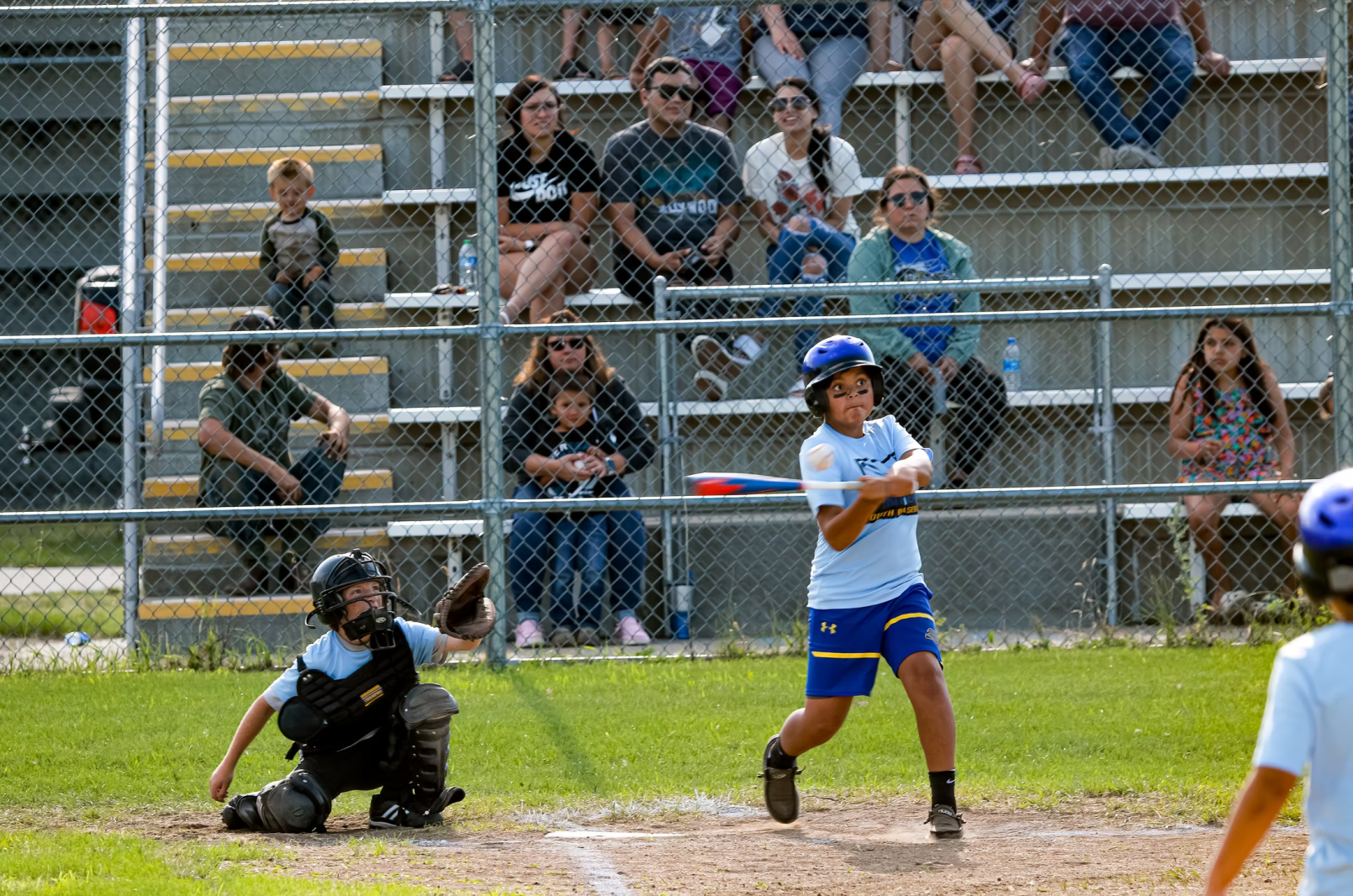
FORT TOTTEN, N.D. — A young nonprofit organization focused on youth sports in a tribal community is doing more than just supporting athletics.
A consultant for the organization said it’s acting much like a parks and recreation department, which larger communities may take for granted.
Dean Duphinais Jr., who also is a founder of Spirit Lake Youth Sports, said the group is not a tribal entity, but is partnering with the tribe on a number of future projects.
“Typical municipalities and cities, you’ve got your parks and rec department, they do everything,” he said. “They do the baseball diamonds, they do whatever recreational facilities a community might have. We’re stepping in to act as that development arm of the tribe, developing the community with some of these amenities.”
Spirit Lake Youth Sports (SLYS) is seeing the fruition of a project that will create a base of operations. Work has broken ground on a fieldhouse at the Four Winds High School baseball fields in Fort Totten. The tribe has leased 7.1 acres of land for SLYS to use.
The fieldhouse’s first floor will have a concession stand, bathrooms and storage space, while the second floor is an open concept where the board will have meetings, conduct training and be a spot for staff and a full-time executive director to work. SLYS has also launched a “Build the Spirit” fundraising campaign to outfit the fieldhouse with needed materials, such as computers and furnishings. Duphinais said the goal is about $40,000 to $50,000.
The organization started when Duphinais returned to Fort Totten from California. He had two children around tee-ball age and asked a friend, Justin Yankton, if there was a youth baseball program. It was around the time COVID quarantine restrictions were being lifted, and Yankton said there wasn’t anything being prepared or planned for. The two teamed up to put on a summer baseball program, attracting more than 100 kids.
It was an eye opener, Duphinais said, and with his background in nonprofits, he thought it would be a good idea to create one, build a board of directors and make the group sustainable. Following SLYS filing as a nonprofit, it added the Sunka Wakan Program, which teaches kids how to approach, groom and be comfortable around horses before teaching them how to ride. Sunka Wakan means “Sacred Dog,” which is what the Dakota people called horses when the Spanish brought them over, Duphinais said. The Sunka Wakan Program is run by Duphinais’ father, who also is on the board of directors.
“We’re making some really great strides,” Duphinais said. “We have big plans for the future.”
SLYS has been working with the tribe on other ideas, such as an indoor pool, skate park, splash pad, indoor bubble-style facility, RV park for the tribe’s powwow facility and an indoor riding arena for the horse program. Getting the fieldhouse done on time and on target is the main goal at the moment, Duphinais said.
“The name of the game in the nonprofit world is make good on the things that on our plate. Then, you’re in the good graces and you’re eligible to apply for other things,” he said. “That’s what we’re looking to do.”
Duphinais said he hopes people see SLYS as a development arm of the tribe, more than a sports program. It can do construction and development and get land leases. It is in the process of getting another parcel of 27 acres adjacent to the current 7.1 acres, which is close to the powwow grounds. It could be a recreation corridor, he said, and the 27 acres are planned to be used for a park with walking trails and a possible amphitheater.
Duphinais expressed his thanks to the tribe, community and board members, the majority of the latter being veterans, for supporting SLYS.
“We’ve got solid people, and that’s how we’re able to make things like this happen — by having really good people that care about this community as much as each other does, and are willing to roll up their sleeves and make things happen for the community,” he said.
Rec Sports
LOS ANGELES 2028: Wasserman says LA28 has 72% of budget committed so far; IOC has advanced $251+ million to LA28 through 2024
★ The Sports Examiner: Chronicling the key competitive, economic and political forces shaping elite sport and the Olympic Movement.★ ★ To get the daily Sports Examiner Recap by e-mail: sign up here! ★ ≡ LA28 REVENUES $5.1B SO FAR ≡ The New York Times posted a lengthy update story on the 2028 Olympic and Paralympic […]
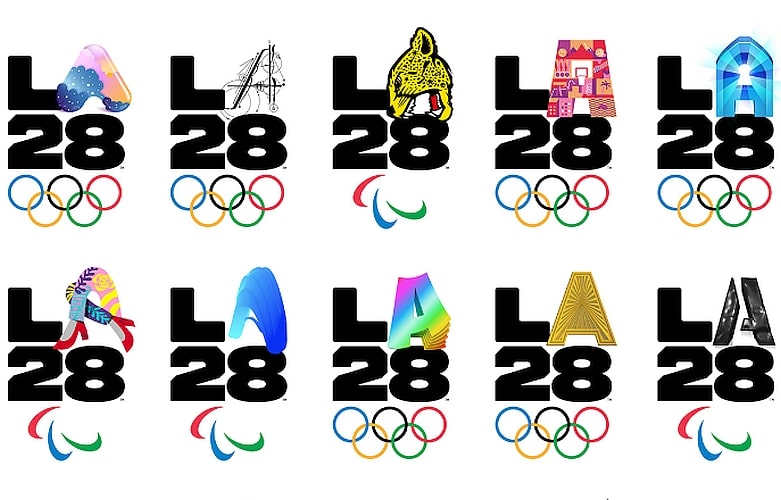
★ The Sports Examiner: Chronicling the key competitive, economic and political forces shaping elite sport and the Olympic Movement.★
★ To get the daily Sports Examiner Recap by e-mail: sign up here! ★
≡ LA28 REVENUES $5.1B SO FAR ≡
The New York Times posted a lengthy update story on the 2028 Olympic and Paralympic Games organizing effort on Wednesday (28th) titled “L.A. Made Big Promises for the Olympics. Can it Deliver by 2028?,” which included the usual recitation of positive and negative views of progress, from most of the usual suspects.
Of note was a financial update from LA28 Chair Casey Wasserman, as the story noted:
“Mr. Wasserman said he had obtained commitments of $5.1 billion from benefactors and corporate sponsors and was confident that the rest of the $7.1 billion [budget] would come in ticket sales.”
This is 72% of the budget and $500 million more than the $4.6 million confirmed at the news conference following last November’s International Olympic Committee Coordination Commission meeting in Los Angeles.
Wasserman said at that time these funds came from the IOC’s contribution of television rights and sponsorship fees, LA28’s own sponsorships and licensing and merchandising sales (and guarantees) and hospitality sales guarantees. Actual ticket sales are still to come.
¶
The eight-year anniversary date of the 2017 award of the Games of the XXXIV Olympiad to Los Angeles is coming up on 13 September, and a quick look at the LA28 finances shows that it has spent – across its first six years – less than 10% of its planned $7.1 billion budget.
The International Olympic Committee has been a significant funder so far, with more coming.
Looking at the LA28 financial statements included in its annual report to the City of Los Angeles, spending as the organizing committee – not as the bid committee – began in 2018:
● 2018: $16.464 million in expenditures
● 2019: $23.413 million
● 2020: $36.493 million
● 2021: $93.243 million
● 2022: $142.592 million
● 2023: $156.647 million
That’s $468.852 million across the first six years of existence, and forecasting a $180 million cost for 2024, the seven-year total was likely about $648 million, or 9.1% of its latest $7.149.4 billion lifetime budget through 2028. (This is not all cash, as there are some modest amounts of non-cash expenditures, such as depreciation.)
In the spending are two large (really large) amounts which are not directly related to the work of organizing the Games. Those are the payments to the City of Los Angeles Recreation and Parks Department for the Youth Sports Partnership program that subsidizes participation in programs, and revenue-sharing payments to the United States Olympic & Paralympic Committee as part of its United States Olympic & Paralympic Properties revenue-generating joint venture.
At the end of 2023:
● $120.076 million to the USOPC
● $34.836 million to the Youth Sports Partnership
The USOPC payments kicked in in 2021 and account for the huge jump in spending in that year from 2020, and LA28 will pay a total of $430 million to the USOPC by the end of the program in 2028, at $58 or $64 million per year.
The Youth Sports Partnership payments are also increasing, with $25.088 million advanced in 2024 and more than $33 million requested for 2025 and into 2026.
In the meantime, the IOC will pay the LA28 organizers $898 million in television rights fees sharing and an estimated $437 million for a share of its TOP sponsorship program, totaling a projected $1.335 billion. Some of that has been paid already, including $160 million in advance for the Youth Sports Partnership funding, per the IOC’s financial statements:
● 2018: $36.0 million
● 2019: $36.0 million
● 2020: $36.0 million
● 2021: $36.0 million
● 2022: $36.0 million
● 2023: $36.262 million
● 2024: $34.900 million
That’s $251.162 million advanced by the IOC, against a $1.335 billion total, or about 18.8%. Of this, $167.895 million has come from advances against the $898 million for television rights sales, and just $14.817 million so far as a share of the TOP sponsorships.
So, there’s a lot more money coming from the IOC on the road to 2028, and LA28 has spent relatively little so far. But while more money is still to come in, the expenditures will leap, especially in the final 18 months from the start of 2027 through the 2028 Games.
But having 72% of its lifetime budget accounted for more than three years out is comforting, at least for now.
¶
★ Receive our exclusive, weekday TSX Recap by e-mail by clicking here.
★ Sign up a friend to receive the TSX Recap by clicking here.
★ Please consider a donation here to keep this site going.
For our updated, 694-event International Sports Calendar for 2025 and beyond, by date and by sport, click here!
Rec Sports
Meeker youth archery competitors prep for outdoor nationals in July | The Herald Times
MEEKER | Several local youth archers recently traveled to the Cameo Shooting and Education Complex to compete in the Colorado State S3DA Outdoor Target and 3D Archery Tournaments. About 70 participants from across the state competed for the title of state champion. The target tournament was held on the first day and featured a 36-arrow […]
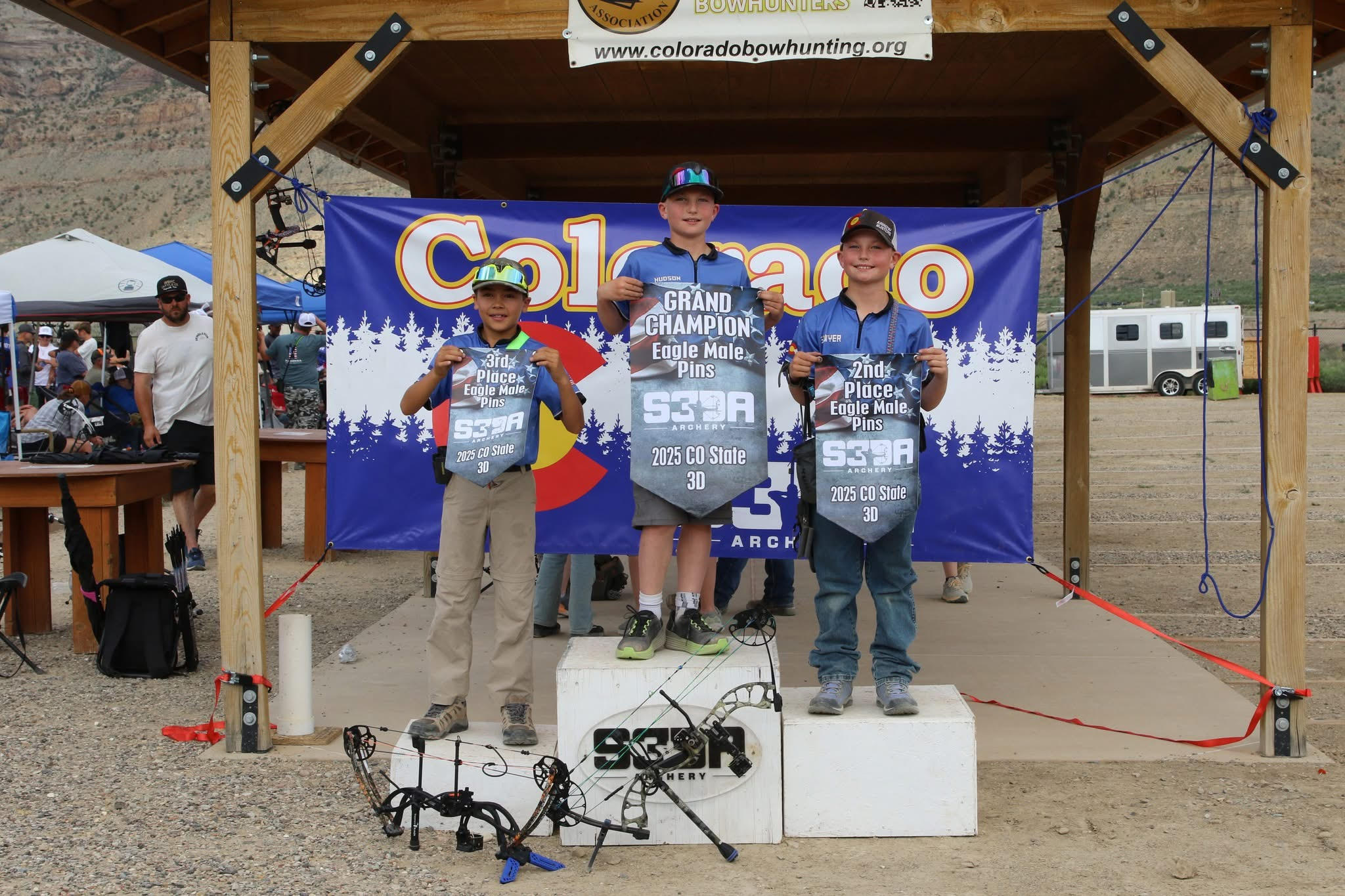
MEEKER | Several local youth archers recently traveled to the Cameo Shooting and Education Complex to compete in the Colorado State S3DA Outdoor Target and 3D Archery Tournaments. About 70 participants from across the state competed for the title of state champion.
The target tournament was held on the first day and featured a 36-arrow elimination round. The top four shooters then advanced to a final round, where they each shot 18 more arrows to determine podium placement.
On the second day, competitors tackled two different 3D courses, each consisting of 15 targets. The top four archers then shot five additional 3D targets for a chance at the podium. Archers had to strategically place arrows on targets up to 55 yards away, with most using equipment that classifies them as bowhunters.
At this tournament, Young Adult division podium finishers received information from colleges about scholarship opportunities.
The community is home to several outstanding youth archers, including current indoor state, national and even world champions who have set records in various organizations. Aside from a few local events, most of these archers are now preparing for the S3DA Outdoor Nationals in Helena, Montana, in July.
Local State Outdoor
Target Finishers
Young Adult
Dawn Arnold – 2nd Place
John Bair – Top 10
Taylor Kirkpatrick – Top 10
Jill Ward – Top 10
Youth
Auri Murray – State Champion
Eagle
Sawyer Hummel – State Champion
Hudson Hummel – 2nd Place
Heath Bennett – 3rd Place
Dustin Ward – 4th Place
Jr. Eagle
Lee Kirkpatrick – State Champion
Local State 3D Finishers
Young Adult
Dawn Arnold – 3rd Place
Taylor Kirkpatrick – 4th Place
John Bair – Top 10
Jill Ward – Top 10
Youth
Auri Murray – State Champion
Jemma Bair – 2nd Place
Eagle
Hudson Hummel – State Champion
Sawyer Hummel – 2nd Place
Dustin Ward – 3rd Place
Jr. Eagle
Lee Kirkpatrick – State Champion






Advertisements

Rec Sports
J.W. Craft: Investing in Community Through Sports
Raised on the courts and fields of Tulsa, J.W. Craft grew up competing in classic childhood sports and enjoyed the camaraderie and connection. After living in some of the country’s biggest cities and building a successful career, he felt a strong pull back to his hometown—not just to work alongside his father in their family […]
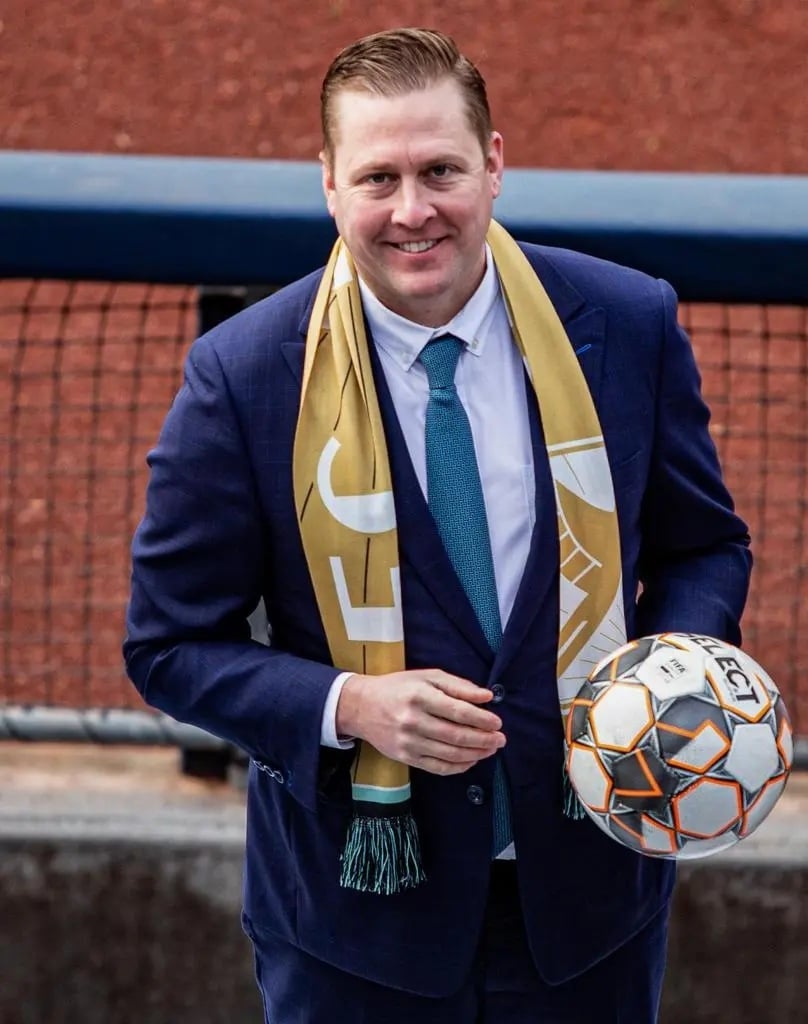
Raised on the courts and fields of Tulsa, J.W. Craft grew up competing in classic childhood sports and enjoyed the camaraderie and connection. After living in some of the country’s biggest cities and building a successful career, he felt a strong pull back to his hometown—not just to work alongside his father in their family business, but to raise his kids – he has five – in a city that is near and dear to his heart. He is also very interested in investing in Tulsa’s future and has done so with brothers, Ryan and Kyle, through bold moves like acquiring FC Tulsa and Ascension St. John Sportsplex (formerly Titan Sports Complex).
Through these endeavors, they are blending their passion for sports with heart for community development by creating vibrant spaces where families, fans and future athletes can thrive. Their mission? To fuel civic pride, foster healthy lifestyles, offer high-level development and connections locally, and help Tulsa shine on a national and global stage.
TK: What did you enjoy about growing up in Tulsa?
J.W.: I played all the traditional kids’ sports where I was able to compete and get to know many kids who went on to play at the next level.
TK: You left Tulsa for college and a career but eventually returned to raise a family. What made you want to return?
J.W.: The main thing was the chance to work with my father in the family business. Also, having been raised within a family who were actively working with non-profits to make Tulsa better, I was keen on making that a priority when I moved back. I have lived in several different large cities (Washington, D.C., NYC area, San Francisco, Los Angeles, Dallas) and the quality of life and raising a family here is very hard to beat.
TK: What sparked your interest in owning a professional soccer team in Tulsa?
J.W.: I was looking for a project of some kind that was going to add to the fabric of the city that would complement the positive growth going on with the Gathering Place, Guthrie Green, BOK Center and ONEOK Field. Soccer is going through tremendous growth in the country, and the idea that we play major market cities (Tampa, Sacramento, Phoenix, Pittsburgh, Indianapolis), I felt like our matches could be a nice two-hour commercial to highlight the city for people around the country and world. Having this team has also had a positive impact on economic development, increased the talent/workforce, and quality of life for Tulsans.
TK: What have you seen FC Tulsa provide to our city?
J.W.: Sports bring communities together. We have one team the whole city can cheer for and support. This team has been a source of civic pride in celebrating what we have in common versus what is divisive.
TK: Once acquiring the team, it went through a rebrand. Tell us a little about that.
J.W.: It was really about embracing Tulsa’s history, but also looking to the future. The name, FC Tulsa, resonates internationally and works because we draw a lot of international players. We were looking to recognize the name of our city as well as the scissortail flycatcher, our state bird, being at the heart of the logo – so really taking a lot of our local influence and honing back into where we’re from. It also incorporates vertical typeface that matches a lot of the downtown signage, and the Art Deco matches the buildings.
We continue to work with a number of different local graphic designers to amplify a lot of really cool stuff that’s happening here in town, and you’ll see that in special jerseys and merch.
TK: What interested you about acquiring Ascension St. John Sportsplex?
J.W.: We’ve been a tenant in the space since it was built in 2018. When it was listed for sale a few years ago, we knew we either needed to purchase it or look to build our own. FC Tulsa is an important but small piece of what the facility provides. We are running all kinds of youth programming, national and international events in the space. It brings visitors to Tulsa and encourages a healthy and active lifestyle for kids and adults of all ages.
TK: Tell us about your vision for FC Tulsa and the Sportsplex.
J.W.: Our vision is to have packed, sellout matches and have the Sportsplex utilized all the time. We play 17 times at home from March to October, and we want every match to be an event people look forward to going downtown to see. At the Sportsplex, we really have two different segments: Weekends host tournaments bringing volleyball, basketball and other sports into town playing teams from Tulsa, the state and region. And during the week, we have our youth and adult leagues to keep people active and enjoy fun and competition in a comfortable place.
TK: Why do you feel that FC Tulsa and the Sportsplex are good ways to invest in Tulsa?
J.W.: Tulsa is on an exciting trajectory and certainly having more things for the community to get behind as it grows is something we want to be a part of.
TK: Tell us about what people can expect when they attend the soccer matches.
J.W.: With roughly two games a month, most of those matches are on Friday or Saturday night. We offer a number of ticket options and bundled group pricing to appeal to all fans. The games run about two hours with two halves of 45 minutes each. Goals are exciting as we shoot off fireworks when we score!
T.K. As a father of five, how have you involved your family/kids in what you’re working on?
J.W.: Only one of my kids plays soccer, but my passion has rubbed off on each of them. I will usually pick one or two road games a season and take one of my kids with me. We pick the city and make a weekend with the game as one thing on the itinerary. Last year was a big one for international soccer as we went to the Liga MX final in Mexico City and quarterfinal and semi-final matches in Germany for the Euros.
T.K.: How can families/kids get involved in FC Tulsa? What opportunities are available?
J.W.: This summer, we have a variety of sports camps running all summer long at the Sportsplex. Register for one of our sports leagues at the Sportsplex Signup for the FC Tulsa Training Academy Camps.
Get to know our players, come out to a match and support the team. Both home and away games are on ESPN+, and the Paramount+/CBS Sports Network.
Listen to the Sharing Passion and Purpose Podcast for the full interview and to learn the one thing that J.W. never expected to happen as a result of investing in FC Tulsa. Listen on your favorite podcasting app or directly at SharingPassionandPurpose.com.
Check out FC Tulsa & Ascension St. John Sportsplex online: FCTulsa.com is #ForTulsa; Instagram: @fctulsa & @ascensionstjohnsportsplex; Facebook: @fctulsa & @ascensionstjohnsportsplex
 Nancy A. Moore is a Public Relations Coordinator at Montreau, Adjunct Professor at Tulsa Community College, and has been writing for TulsaKids for almost 20 years.
Nancy A. Moore is a Public Relations Coordinator at Montreau, Adjunct Professor at Tulsa Community College, and has been writing for TulsaKids for almost 20 years.

Rec Sports
Obituary for Larry Swim | Barkley Funeral Chapels
Larry Leon Swim, 85, of Casey, IL passed away at 6:05 am on May 27, 2025, at his residence. Cremation rites have been accorded. A memorial visitation will be on Thursday June 12, 2025, from 2:00 to 3:00 pm at the Barkley Funeral Chapel in Greenup. Memorial services will begin at 3:00 pm. Private family […]
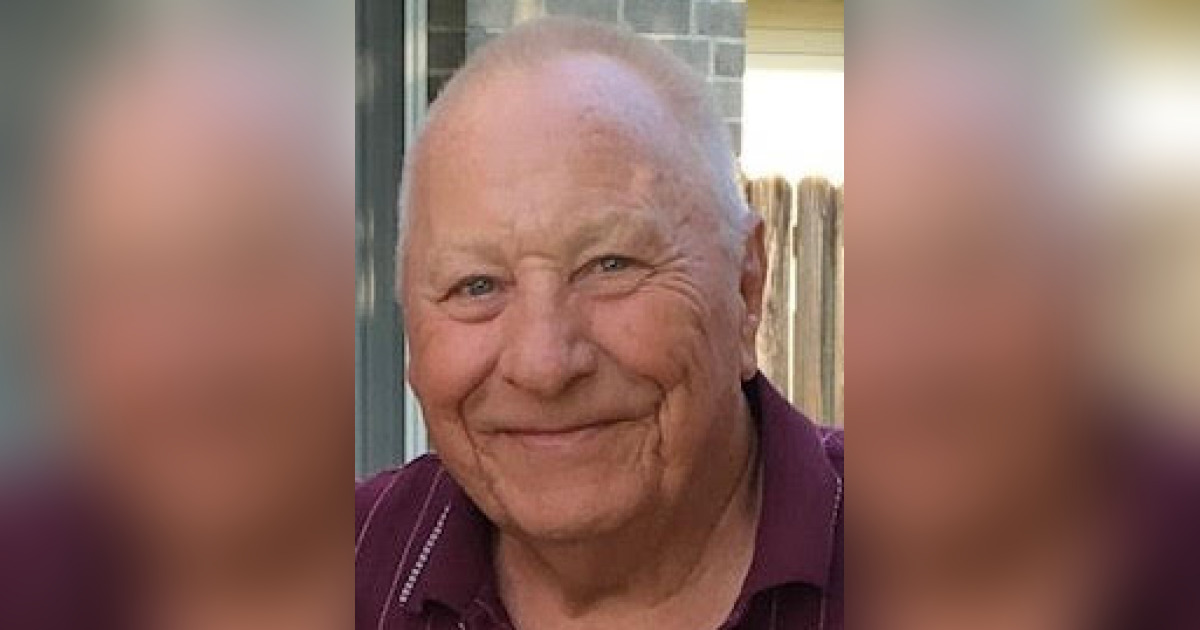
Larry Leon Swim, 85, of Casey, IL passed away at 6:05 am on May 27, 2025, at his residence.
Cremation rites have been accorded. A memorial visitation will be on Thursday June 12, 2025, from 2:00 to 3:00 pm at the Barkley Funeral Chapel in Greenup. Memorial services will begin at 3:00 pm. Private family burial will be in the Washington St. Cemetery- Vernon Addition. The Barkley Funeral Chapel is assisting the family.
Larry was born on January 27, 1940, to Isaac and Irene (Swim) Swim, in Casey, IL. Survivors include his son Mitchel (Christine) Swim; and grandchildren Hannah and Megan Swim. He was preceded in death by his parents, brother Roy Swim, and sisters Lola Ann Plunk and Marie Cargle.
Larry worked as a press operator at Donnely’s in Mattoon for 28 years until he retired. He then started his own business which he operated for two years, Swim’s Home Maintenance. He was a former member of the Moose and Eagles Lodges in Charleston. Larry enjoyed golf, shuffleboard, fishing, and coaching youth sports, including 14 years of youth league baseball. He was a fan of Illini Sports and the St. Louis Cardinals. He also enjoyed spending winters in Mission, Texas.
Memorial donations can be made to Casey-Westfield Athletic Booster Club or the American Heart Association.
Online condolences can be expressed at www.barkleyfuneralchapels.com
To send flowers
to the family or plant a tree
in memory of Larry Swim, please visit our floral store.
Rec Sports
Study finds young people play sports less when they get their first job, but social support helps
Credit: Unsplash/CC0 Public Domain Every year, around 90,000 young people make the transition from school to work. A large number of them start to participate in sports less during this transition. This is worrying, because those who participate less in sports usually do not pick it up again automatically. However, an activating social and work […]
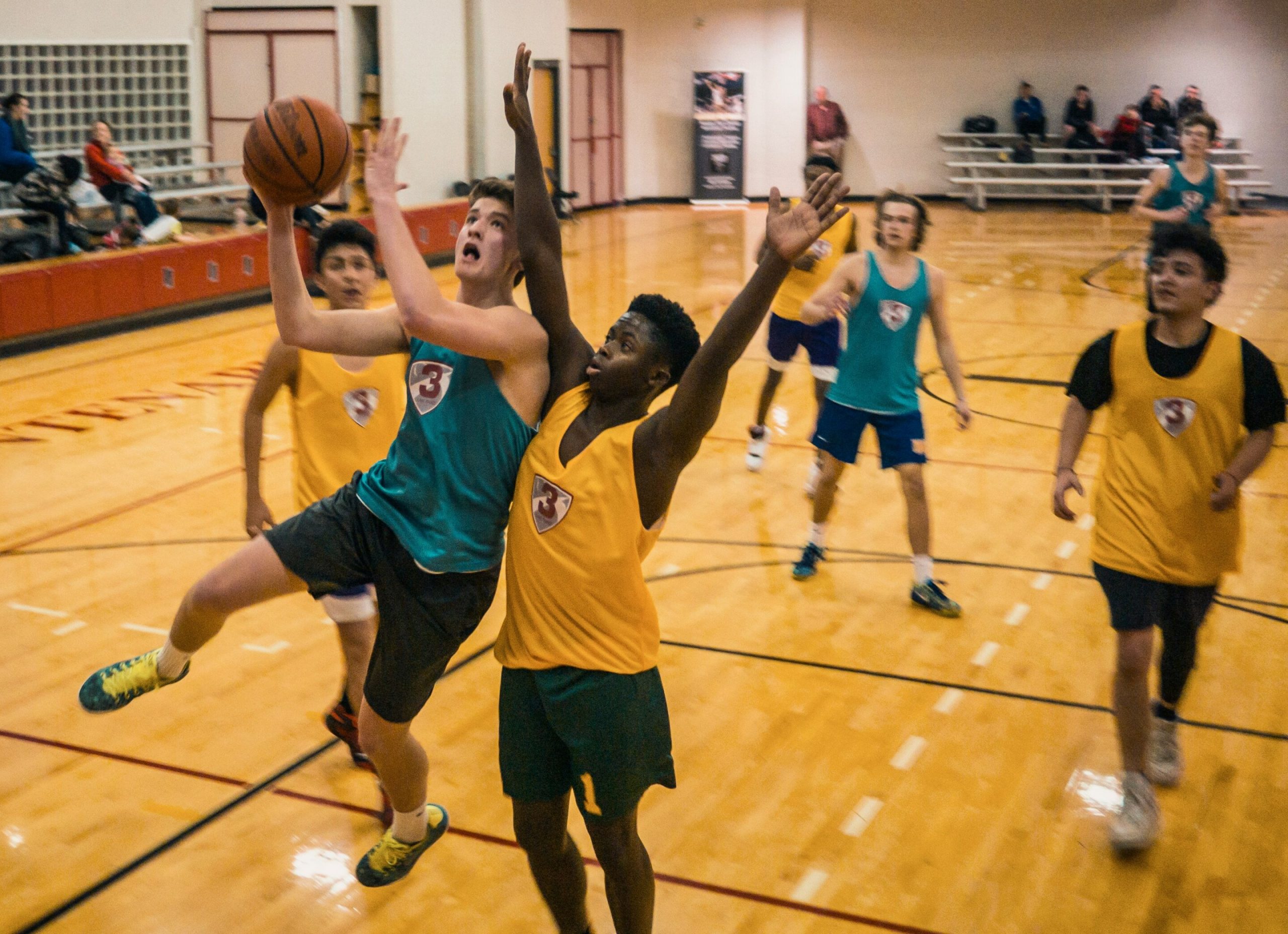
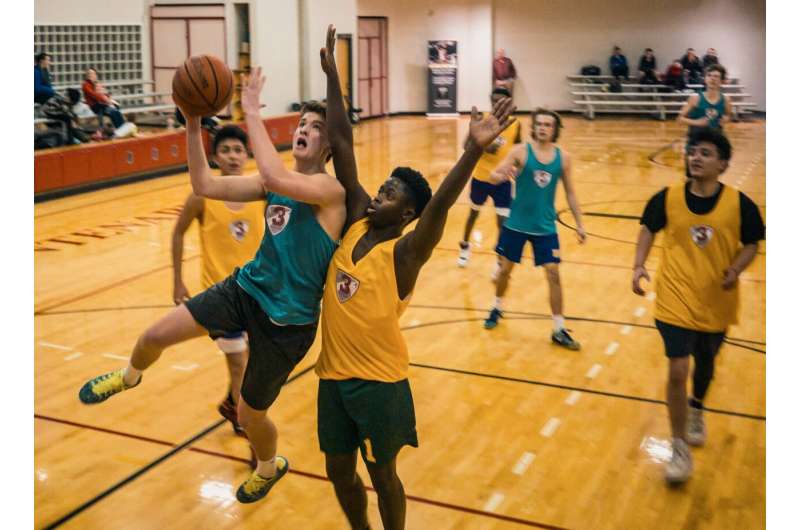
Every year, around 90,000 young people make the transition from school to work. A large number of them start to participate in sports less during this transition. This is worrying, because those who participate less in sports usually do not pick it up again automatically.
However, an activating social and work environment can restimulate participation in sports, according to research by sociologist Sara Wiertsema. Wiertsema’s Ph.D. defense is May 28 at Radboud University. The study is published in the journal International Review for the Sociology of Sport.
Your first job is a milestone that also brings about quite a few changes in terms of sports. “Compared to school pupils and students, working young adults exercise less and are more likely to choose individual sports over team sports,” explains Wiertsema.
The sociologist investigated the role of the workplace in this decline. To this end, she used various questionnaires completed by thousands of young adults in the Netherlands and Europe. They were asked about their sporting activities, the physical and mental demands of their first job, and their social life, among other things.
Wiertsema said, “A new routine with a stricter schedule, fixed working hours and work stress all determine whether you feel like it and have time to continue exercising. The study clearly shows that young adults adapt their sporting behavior to their new working life.”
Keep your brain and body fit
The type of work this group does can determine how active young adults remain. “If you have a job that involves a lot of cognitive demands, you want to use your body after a long day of working with your mind. This group exercises and plays sports relatively more.
“However, this can also backfire: some of this group prefer to stay at home because of the stress they experience from the mental pressure of work, and are more likely to take up unhealthy activities such as smoking, drinking or unhealthy eating, according to previous research.
The freedom to organize your own day is also important, Wiertsema states. “If you have to be at the office from 9 to 5, five days a week, you have little autonomy over your working hours. But if you can sometimes work from home, or come to the office an hour later, or decide for yourself in which order you carry out your work tasks, you experience more freedom and therefore also the space to go for a walk in between or visit the gym in the morning.”
Support from your environment is important
Young adults who did continue to exercise often did so because they received social support from their environment, for example, in the form of encouragement or offers to exercise together. Wiertsema discovered that colleagues can also play an important role in this.
“It helps enormously if you have sporty colleagues who encourage each other. Going to the gym with your colleagues after work, or having an office group that regularly encourages each other to cycle or run, limits the decline in physical activity among young working adults.
“The more physical activity and encouragement you get from your social circle, the more likely you are to maintain your exercise habits.”
More information:
Sara Wiertsema et al, Staying active in sports during the transition from school to work: The role of social support in young adulthood, International Review for the Sociology of Sport (2025). DOI: 10.1177/10126902251328439
Provided by
Radboud University Nijmegen
Citation:
Study finds young people play sports less when they get their first job, but social support helps (2025, May 28)
retrieved 28 May 2025
from https://phys.org/news/2025-05-young-people-play-sports-job.html
This document is subject to copyright. Apart from any fair dealing for the purpose of private study or research, no
part may be reproduced without the written permission. The content is provided for information purposes only.
Rec Sports
DOJ launches California Title IX investigation over transgender athlete participation in sports
With the national spotlight shining on a transgender athlete in Southern California pursuing a championship, federal prosecutors are putting pressure on the state and a local school district for allowing that chase to happen in the first place. The U.S. Department of Justice announced on Wednesday that it has opened an investigation into whether a California state […]
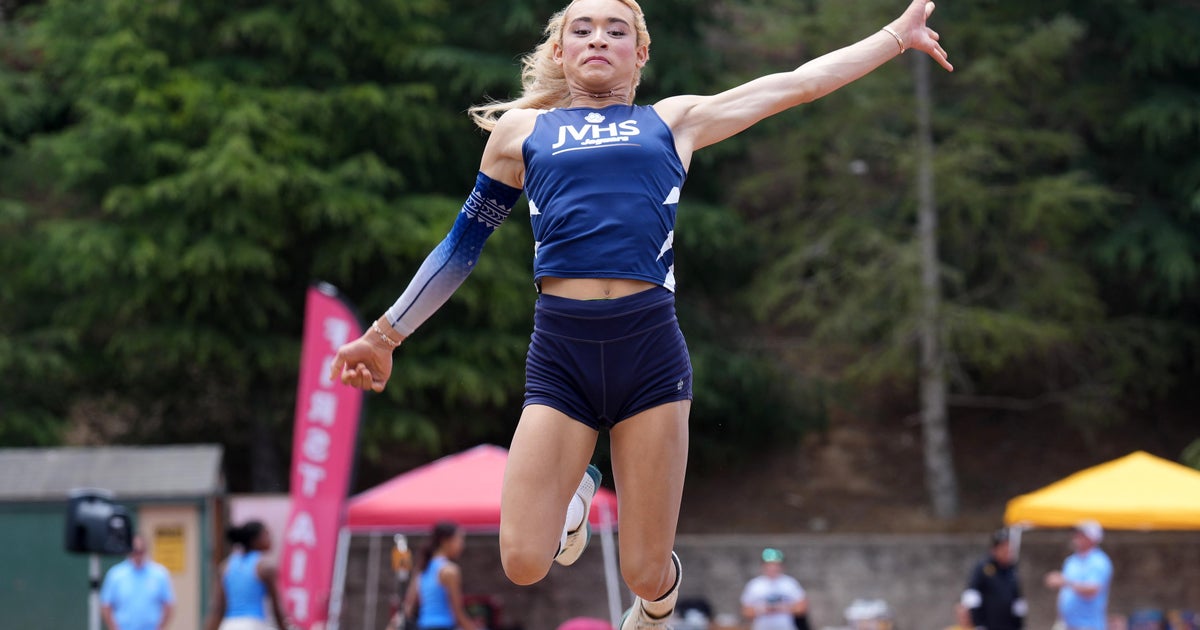
With the national spotlight shining on a transgender athlete in Southern California pursuing a championship, federal prosecutors are putting pressure on the state and a local school district for allowing that chase to happen in the first place.
The U.S. Department of Justice announced on Wednesday that it has opened an investigation into whether a California state law complies with Title IX.
In August 2013, then-Gov. Jerry Brown signed AB 1266 into law. The policy is intended to prevent sex-based discrimination in California’s schools, preventing them from excluding gender groups from classes and extracurricular programs.
One specific section of the bill, however, is now under fire from the current administration.
“A pupil shall be permitted to participate in sex-segregated school programs and activities, including athletic teams and competitions, and use facilities consistent with his or her gender identity, irrespective of the gender listed on the pupil’s records,” AB 1266 states, requiring schools to adhere to each student’s preferred gender identity rather than their sex assigned at birth.
Now, the DOJ is investigating whether this clause violates Title IX.
Title IX, in the words of the DOJ, ensures “equal educational opportunities and prevents discrimination based on sex in federally funded schools and athletic programs.” Administration officials claim that allowing transgender girls to compete in girls’ athletic competitions undermines the rights of cisgender athletes as an issue of fairness.
“Title IX exists to protect women and girls in education. It is perverse to allow males to compete against girls, invade their private spaces, and take their trophies,” said Harmeet K. Dhillon, Assistant Attorney General for Civil Rights. “This Division will aggressively defend women’s hard-fought rights to equal educational opportunities.”
The announcement cites the ongoing legal battle surrounding two former athletes at Martin Luther King Jr. High School in Riverside. One of which alleges she lost a spot on the school’s cross-country team to a transgender teammate, violating her Title IX rights as a female athlete.
The administration of President Donald Trump made its stance clear on that lawsuit Wednesday and threw its support behind it, sending legal notices of its investigation to California Attorney General Rob Bonta, State Superintendent of Public Instruction Tony Thurmond, and the California Interscholastic Federation.
The DOJ also sent a notice to the Jurupa Unified School District as an openly transgender track and field athlete pursues a state title for one of its schools.
Getty Images
AB Hernandez, a junior at Jurupa Valley High School, placed first at the CIF Southern Section Masters Meet in both the girls’ long and triple jump events. The wins ensure Hernandez a spot at the CIF State Track & Field Championships in Clovis on Saturday and Sunday.
In response, the CIF announced Tuesday that it was introducing a pilot program for the 2025 state meet that will create extra spots for cisgender athletes “who would have earned the next qualifying mark” to have an opportunity to compete. Gov. Gavin Newsom, who himself has said it’s “deeply unfair” to allow transgender girls to compete, called the program reasonable on Tuesday.
On Wednesday, the CIF announced it would reward cisgender triple and long jump athletes “who would have earned a specific placement on the podium” had Hernandez not competed. In other words, a cisgender athlete will still be named girls’ state champion, regardless of Hernandez’s placement at the state meet.
The CIF did not mention Hernandez by name in either of its statements.
The JUSD said in a statement to CBS News this week that it allowed Hernandez to compete for JVHS as required by state law.
Hernandez has been subject to national scrutiny, including from the president himself. Trump took to his Truth Social platform this week to criticize California leadership, including Newsom, for allowing Hernandez to compete on the girls’ team.
“This week a transitioned Male athlete, at a major event, won ‘everything,’ and is now qualified to compete in the ‘State Finals’ next weekend,” Trump wrote. “As a Male, he was a less than average competitor. As a Female, this transitioned person is practically unbeatable. THIS IS NOT FAIR, AND TOTALLY DEMEANING TO WOMEN AND GIRLS.”
Trump also said he was considering to withhold federal funding from the state if Hernandez was allowed to compete at the state finals.
While speaking with CBS News, a spokesperson for Hernandez called Trump’s lashing out “bullying and discriminatory.”
“This person was voted into an office to work for all the people, and you’re gonna spend your time picking on a child,” said Kathie Moehlig, the founder and executive director of Trans Family Support Services
As of Wednesday, it’s not yet clear if attempts to remove Hernandez from the weekend’s state meet will be successful.
The CIF told KCAL News that it does not keep track of the number of transgender athletes competing in California high school sports.
contributed to this report.
-

 High School Sports3 weeks ago
High School Sports3 weeks agoWeb exclusive
-
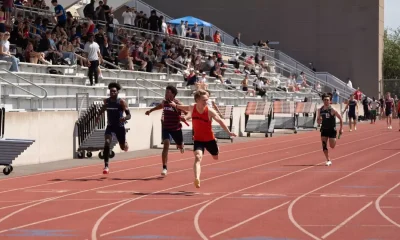
 Sports3 weeks ago
Sports3 weeks agoPrinceton University
-
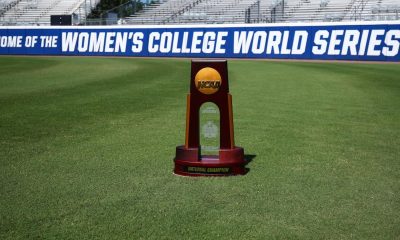
 Sports3 weeks ago
Sports3 weeks ago2025 NCAA softball bracket: Women’s College World Series scores, schedule
-
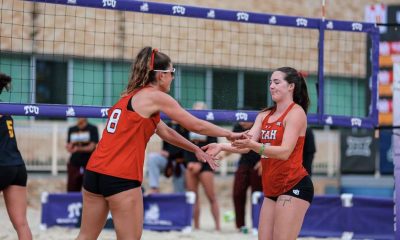
 Sports3 weeks ago
Sports3 weeks agoA fight to save beach volleyball and Utah athletics’ ‘disheartening’ answer
-

 College Sports1 week ago
College Sports1 week agoPortal Update – Basketball and Gymnastics Take Hits
-

 Rec Sports2 weeks ago
Rec Sports2 weeks agoThe Program, a New Basketball Training Facility, Opening in Greenpoint This September
-

 College Sports3 weeks ago
College Sports3 weeks agoNew restaurant to open in State College | Lifestyle
-

 Sports3 weeks ago
Sports3 weeks agoBoys volleyball: Millers sweep Lawrence North
-
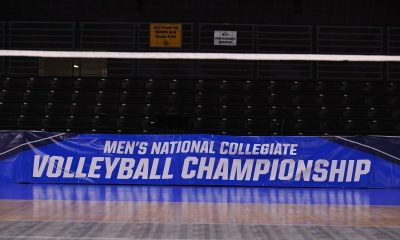
 Sports3 weeks ago
Sports3 weeks ago2025 NCAA men’s volleyball championship: Bracket, schedule, scores
-

 Sports3 weeks ago
Sports3 weeks agoMajor League Baseball results































